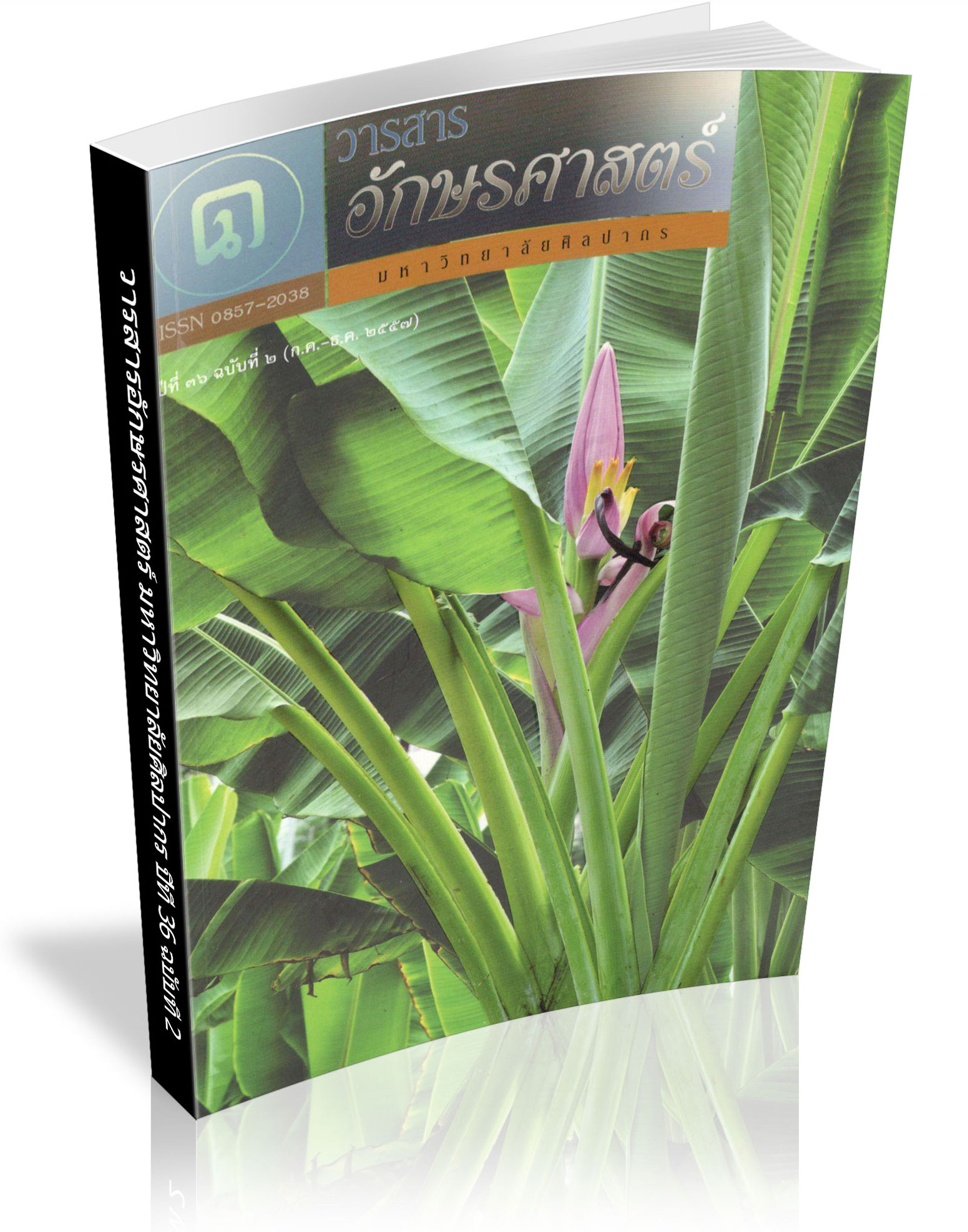Personality Disorders of Characters in Chinese Literature during the New Culture Movement (1918-1924)
Keywords:
Personality Disorders, New Cultural Movement, Modern Chinese Literature, HumanityAbstract
The aim of this research article was to study the personality disorders of characters appearing in Chinese literature during the New Cultural Movement. The scope of the research covered the literature "The True Story of Ah Q" published during 1918-1924 A.D., or starting from the year 1918 in which Luxin's short story entitled “The True Story of Ah Q” was published. His style of writing was considered modern as its content contained criticism of Chinese dignity culture. Therefore, this book was known as the first modern literature in Chinese history. The scope of this research ended in 1924, when the New Culture Movement resulted in political violence.
The study of characters' personality disorders in Chinese literature during the new cultural movement was studied from two aspects; firstly, the personality disorders of characters toward Chinese society, and secondly, the abnormality of sexual behavior toward humanity.
The results showed that literature appearing during the new Cultural Movement is described as a problem reflective writing. It indicated the battle of ideas among Chinese Intellectuals who disclosed personality problems in the characters of their writings. This presented the root cause of tragedy in Chinese society and the pressure of a traditional society that drove a person's mind to insanity, craziness and abnormality. The purpose behind this style of writing was to call attention to a "treatment" of such a problem. The focus of describing characters' emotions and deep mental status, particularly the “disorder” of mind expressed in their behaviors represented the crucial development of Chinese Literature. More aver, from the aspect of humanity, it analyzed human’s behaviors in nature in many aspects. Lastly, it can be said that these intellectuals adopted literature as a tool to encourage people to accept and pay attention to human rights and the equality of humans.
Downloads
References
เชื้อ กาฬแก้ว, โจวซู่เหยิน. กรุงเทพฯ : โรงพิมพ์เซนเตอร์พับลิคเคชั่น, ๒๕๒๗.
ณัฐพงษ์ บุญธรรม. วาทกรรมกับรายการ Thailand's Got Talent ตอนที่ ๕ แนวคิดเกี่ยวกับความบ้าของฟูโกต์. สืบค้นเมื่อวันที่ ๗ มิถุนายน ๒๕๕๗. จากเว็บไซด์ http://www.gotoknow.org/posts/540294.
Downloads
Published
How to Cite
Issue
Section
License
ผู้เขียนบทความต้องยินยอมในข้อกำหนดต่าง ๆ ของวารสารก่อนส่งบทความตีพิมพ์



